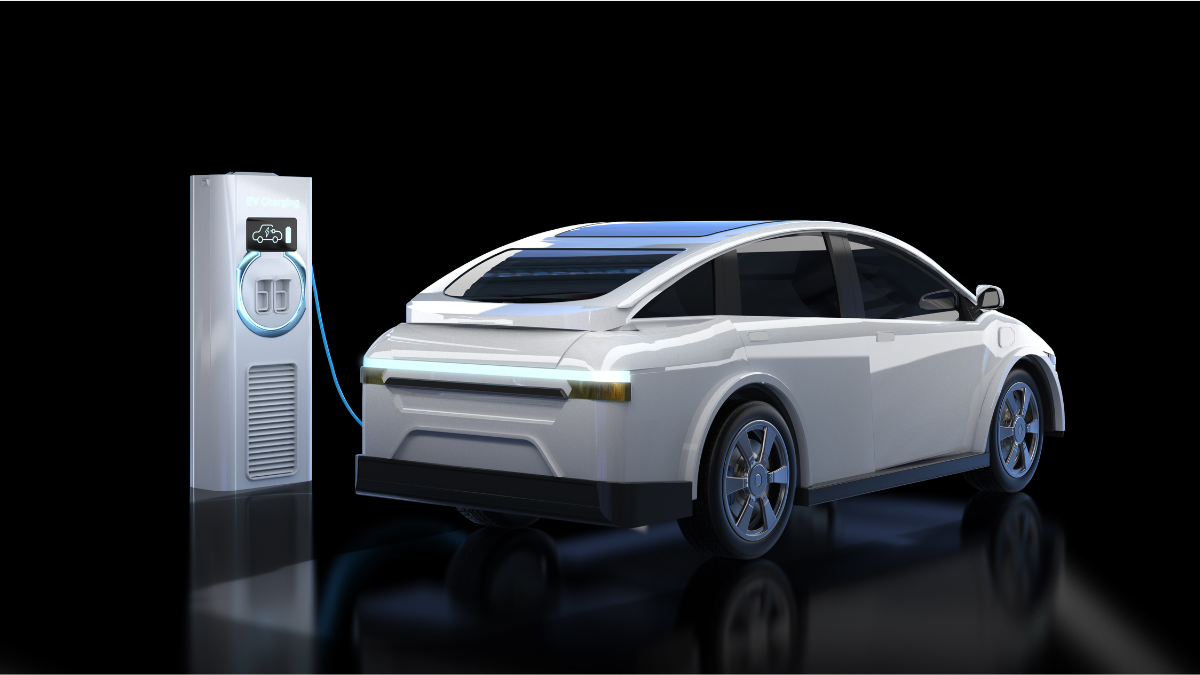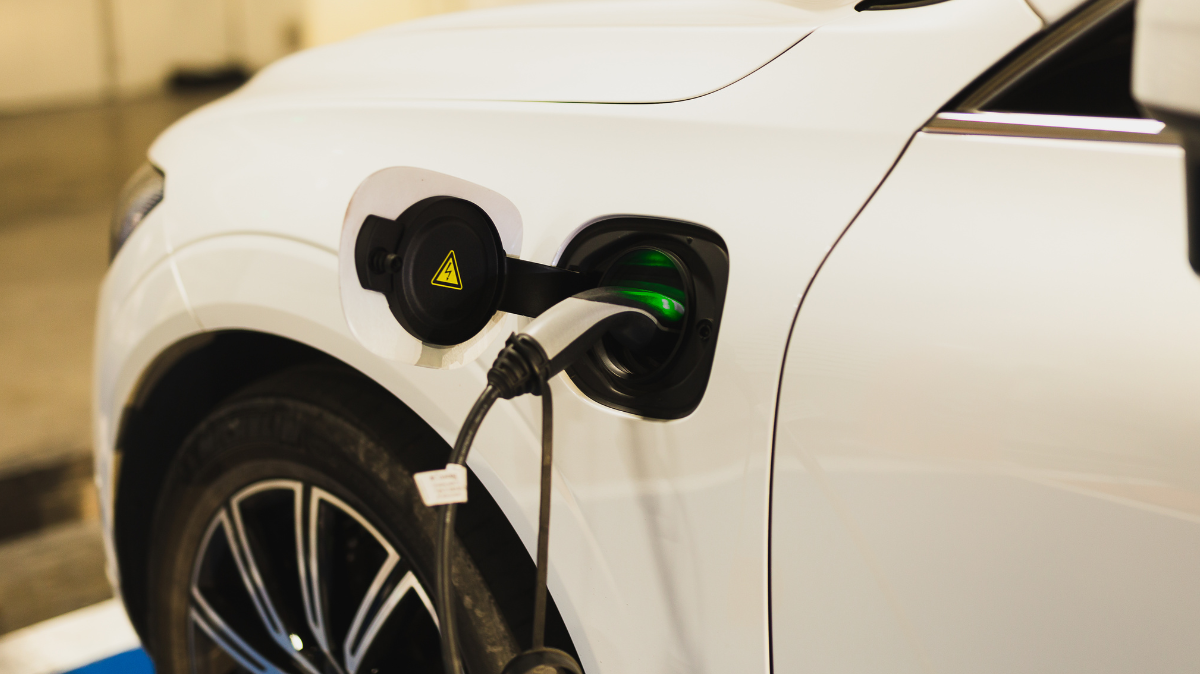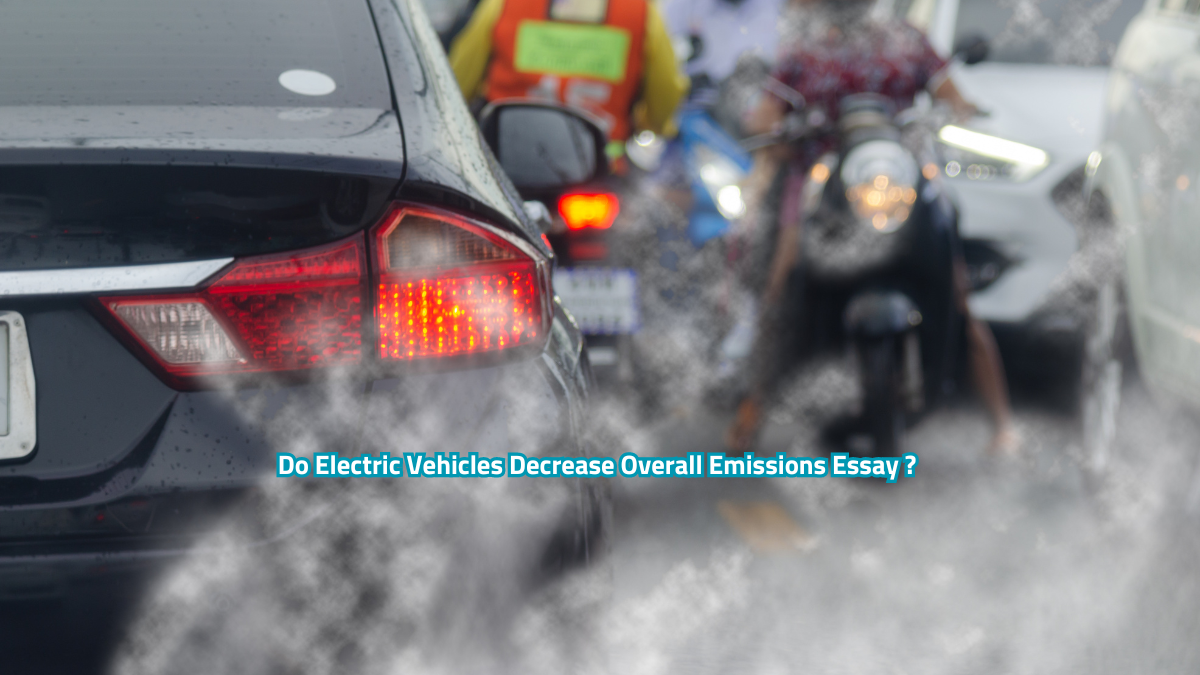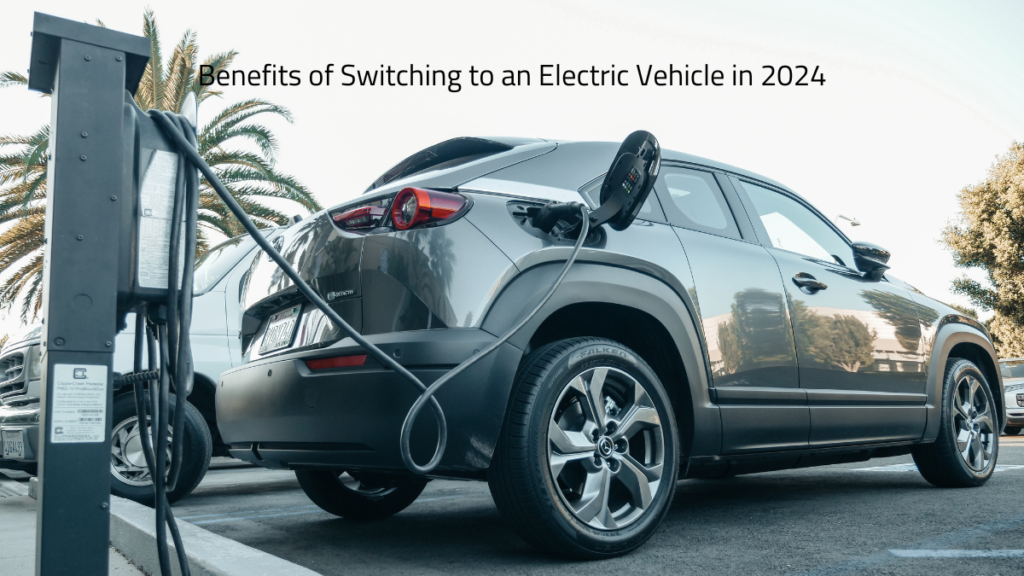Table of Contents
ToggleDo Electric Vehicles Decrease Overall Emissions Essay ?
As the world grapples with the pressing need to combat climate change, the spotlight often falls on reducing emissions from various sectors, including transportation. Electric vehicles (EVs) have emerged as a promising solution, but do they truly decrease overall emissions? Let’s delve into the details to find out.
Do Electric Vehicles Decrease Overall Emissions Essay ?
The Environmental Impact of Traditional Vehicles
Traditional vehicles powered by internal combustion engines (ICEs) are notorious for their emissions. These vehicles burn fossil fuels, primarily gasoline or diesel, releasing significant amounts of carbon dioxide (CO₂) and other greenhouse gases into the atmosphere. This not only contributes to air pollution but also accelerates climate change, creating a critical environmental challenge.
Electric Vehicles: A Cleaner Alternative?
Electric Vehicles (EVs) present a compelling alternative to ICE vehicles. EVs are typically classified into three categories:
- Battery Electric Vehicles (BEVs): Fully electric, relying on rechargeable batteries.
- Plug-in Hybrid Electric Vehicles (PHEVs): Combine electric power with a gasoline engine.
- Hybrid Electric Vehicles (HEVs): Utilize both battery and fuel but are primarily powered by an internal combustion engine.
Each type has distinct characteristics and impacts on emissions.
Life Cycle Emissions of Electric Vehicles
To understand the true environmental impact of EVs, we must consider their entire life cycle, from production to disposal.

Understanding Life Cycle Analysis (LCA)
LCA is a method used to assess the environmental impacts of a product throughout its life, from raw material extraction to disposal. For EVs, this includes:
- Manufacturing Emissions: The production of EVs, especially the batteries, is energy-intensive and generates emissions.
- Usage Emissions: While EVs have zero tailpipe emissions, the source of the electricity used to charge them plays a crucial role in determining their overall emissions.
- End-of-Life Emissions: The disposal or recycling of EV batteries and components also contributes to their environmental footprint.
Comparing Emissions: EVs vs. ICEs
Tailpipe Emissions
ICE vehicles emit pollutants directly from their exhaust systems. EVs, on the other hand, produce no tailpipe emissions, making them cleaner in terms of direct emissions.
Well-to-Wheel Emissions
This broader perspective considers the emissions from fuel production to the vehicle’s operation. For EVs, this includes the emissions from generating electricity. When charged with renewable energy, EVs significantly outperform ICE vehicles in terms of emissions.
Overall Emissions Comparison
Studies consistently show that, over their lifetime, EVs emit fewer greenhouse gases than ICE vehicles, even when accounting for the emissions from electricity production and battery manufacturing.
Electricity Sources and Their Impact on EV Emissions

The environmental benefits of EVs are closely tied to the sources of electricity used to charge them.
The Role of the Electricity Grid
An electricity grid powered predominantly by renewable sources (such as wind, solar, and hydro) makes EVs far more environmentally friendly. In contrast, grids that rely heavily on coal or natural gas can diminish the emissions benefits of EVs.
Renewable Energy vs. Fossil Fuels
Charging EVs with renewable energy sources results in substantially lower emissions compared to charging with fossil fuels. As the share of renewables in the energy mix increases, the overall emissions from EVs are expected to decrease further.
Regional Variations in Electricity Sources
Different regions have varying mixes of electricity sources, affecting the emissions profile of EVs. For example, an EV in a region with abundant hydroelectric power will have lower emissions than one in a coal-dependent area.
Battery Production and Its Environmental Footprint
Mining and Resource Extraction
The production of EV batteries involves extracting minerals like lithium, cobalt, and nickel. These processes can be environmentally damaging if not managed responsibly.
Manufacturing Processes
Battery production is energy-intensive and generates emissions. However, advancements in technology and manufacturing efficiency are gradually reducing these impacts.
Advancements in Battery Technology and Recycling
New battery technologies and improved recycling processes are helping to minimize the environmental footprint of EVs. For instance, second-life applications for used batteries and more efficient recycling methods are being developed.
The Role of Renewable Energy in Reducing EV Emissions

Integrating EVs with renewable energy sources can further amplify their environmental benefits.
Integration of EVs with Renewable Energy Sources
By charging EVs during periods of high renewable energy generation, emissions can be minimized. Smart grids and energy storage solutions are crucial for maximizing this potential.
Impact of Solar, Wind, and Hydroelectric Power
Utilizing solar, wind, and hydroelectric power for EV charging can significantly reduce overall emissions, making EVs a cornerstone of sustainable transportation.
Policy and Regulation: Accelerating EV Adoption
Governments play a pivotal role in promoting EV adoption through various policies and regulations.
Government Incentives and Subsidies
Many governments offer incentives such as tax credits, rebates, and subsidies to make EVs more affordable and attractive to consumers.
Emission Regulations and Standards
Stricter emission standards for vehicles and support for low-emission technologies encourage the transition to cleaner transportation options.
Future Policies to Promote EVs
Future policies could include further investment in charging infrastructure, mandates for zero-emission vehicle sales, and continued support for renewable energy development.
Challenges in the Widespread Adoption of EVs
Despite their benefits, EVs face several challenges that must be addressed to achieve widespread adoption.
Infrastructure: Charging Stations and Grid Capacity
Expanding the network of charging stations and upgrading grid capacity are essential for supporting a growing EV population.
Consumer Acceptance and Market Readiness
Educating consumers about the benefits of EVs and addressing concerns about range, performance, and cost are crucial for market acceptance.
Economic Considerations: Cost and Affordability
While the cost of EVs is decreasing, they remain more expensive upfront than many ICE vehicles. Financial incentives and reductions in battery costs are helping to bridge this gap.
Technological Advancements Driving Emission Reductions
Ongoing technological innovations are critical to reducing the emissions of EVs further.
Innovations in Battery Technology
Advancements in battery chemistry, energy density, and charging speed are making EVs more efficient and environmentally friendly.
Smart Grids and Energy Management
Smart grids enable more efficient energy use and integration of renewable energy, optimizing the charging and operation of EVs.
Autonomous and Connected Vehicle Technology
Autonomous and connected technologies can enhance the efficiency of EVs, reduce traffic congestion, and lower overall emissions.
Case Studies: EVs and Emission Reductions
Norway: Leading the Charge
Norway has one of the highest per capita rates of EV adoption, supported by strong government incentives and a high share of renewable energy in its grid.
California: State-Level Initiatives
California’s stringent emission standards and generous incentives have made it a leader in EV adoption and a model for other regions.
China: Scaling Up EV Production and Adoption
China’s massive investments in EV production and infrastructure have positioned it as a global leader in the EV market, contributing significantly to emission reductions.
Global Impact of Electric Vehicles
As EV adoption grows globally, their impact on reducing emissions becomes increasingly significant.
Contributions to Global Emission Reductions
Widespread use of EVs can contribute to substantial reductions in global greenhouse gas emissions, supporting international climate goals.
EVs in the Context of International Climate Goals
The adoption of EVs aligns with global efforts to limit temperature rise and achieve net-zero emissions, making them a vital component of climate strategies.
The Future of Electric Vehicles and Emission Reduction

Looking ahead, the future of EVs appears promising, with ongoing advancements and growing adoption.
Predictions for EV Market Growth
Analysts predict that EVs will make up a significant portion of the global vehicle market within the next few decades, driven by technological advancements and supportive policies.
Potential for Zero-Emission Transportation
With continued innovation and commitment to renewable energy, EVs have the potential to lead the way toward a zero-emission transportation future.
Conclusion
Now you know Do Electric Vehicles Decrease Overall Emissions Essay ?
Electric vehicles hold tremendous potential for reducing overall emissions, especially when coupled with renewable energy sources. While challenges remain, technological advancements, supportive policies, and growing consumer acceptance are paving the way for a cleaner, more sustainable future. By embracing EVs, we can make significant strides toward mitigating climate change and achieving a greener planet.
FAQs
1. Do electric vehicles truly have lower emissions over their lifetime? Yes, EVs typically have lower emissions over their lifetime compared to traditional vehicles, even when accounting for the emissions from electricity generation and battery production.
2. How does the source of electricity affect EV emissions? The environmental benefits of EVs are greatly influenced by the electricity source used for charging. Renewable energy sources like solar and wind reduce overall emissions, while fossil fuels increase them.
3. What are the environmental impacts of EV battery production? Battery production involves significant emissions due to mining and manufacturing processes. However, advancements in technology and recycling are helping to mitigate these impacts.
4. Can EVs be a solution for reducing global emissions? Yes, EVs can play a crucial role in reducing global emissions, especially when paired with renewable energy and supported by appropriate policies and infrastructure.
5. How can governments support the transition to electric vehicles? Governments can support the transition by offering financial incentives, investing in charging infrastructure, implementing strict emission standards, and promoting the development of renewable energy sources.
This was the whole article on Do Electric Vehicles Decrease Overall Emissions Essay ?
I hope you liked it.
Learn more:



















3 thoughts on “Do Electric Vehicles Decrease Overall Emissions Essay ? | A Full Guide”